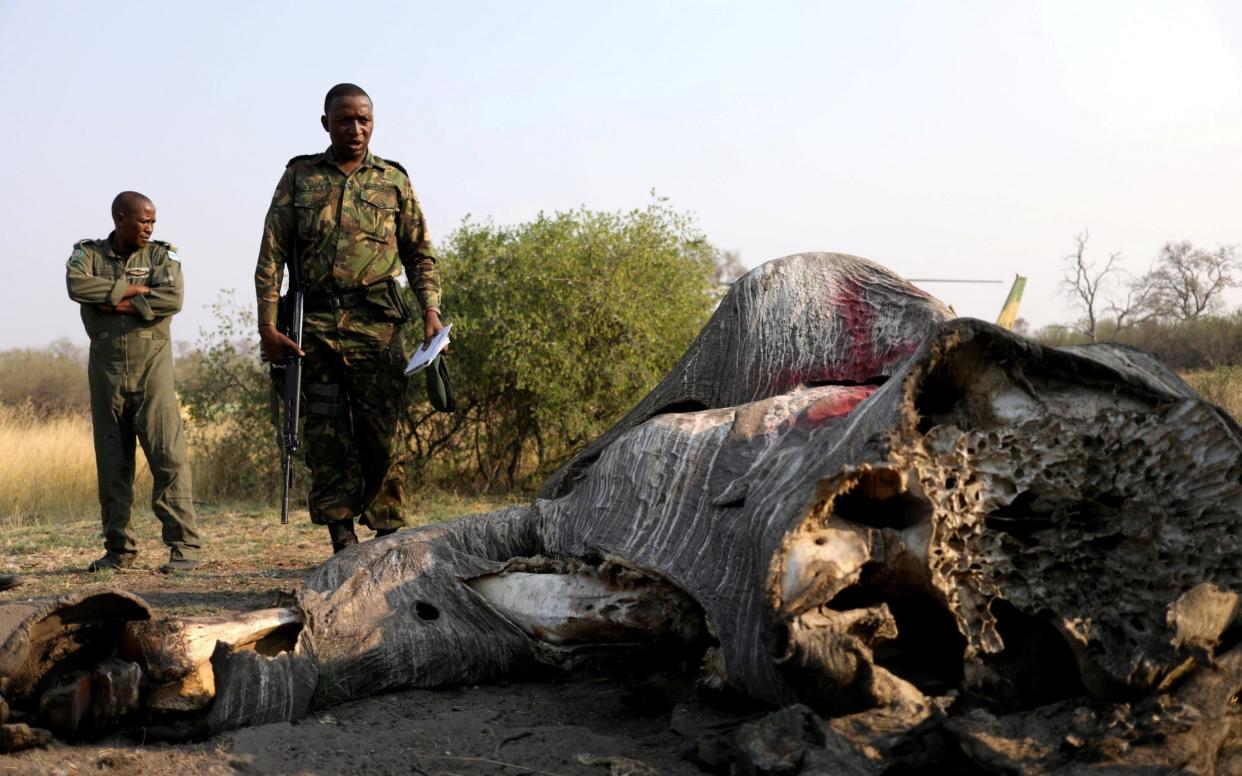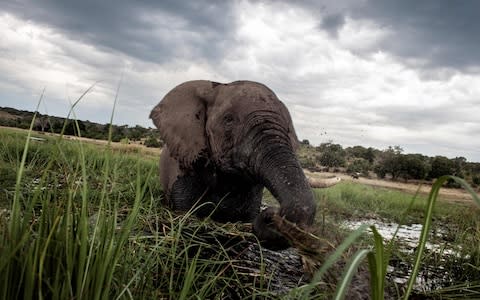Conservationists alarmed as Botswana lifts ban on elephant hunting

By Roland Oliphant, senior foreign correspondent
International efforts to stop the illegal ivory trade are likely to suffer after Botswana lifted its ban on elephant hunting, conservationists have warned.
The southern African country, which is home to the continent's largest population of elephants, said on Thursday that it would resume hunting in "an orderly and ethical manner" following a review of its conservation policy.
Onkokame Kitso Mokaila, Botswana's minister of environment, said the aim was to "manage" rather than reduce elephant numbers and that hunting would be restricted by "scientifically arrived at quotas" of no more than a few hundred per year.
"The recommendation the cabinet rejected was that off a cull," he said at a press conference. "Botswana has never advocated for mass slaughter and that will never happen in our country."

Mr Mokaila said the four year blanket suspension on elephant hunting had led to an increase in human-elephant conflict and adversely affected rural communities.
But conservationists warned the decision could dramatically set back continent-wide efforts to save the elephant and called on the government to think again.
Dan Bucknell, the executive director of Tusk, the Duke of Cambridge's conservation charity, called the move "sad and disappointing."
"International efforts to stop the illegal ivory trade will certainly suffer if Botswana's ban on hunting is lifted. We fully understand that human-elephant conflict is a very real and growing problem for rural communities across much of Africa, but there are many effective approaches that can be taken to prevent it and protect people and their livelihoods,” he said.
Botswana has previously been praised for its leadership on conservation issues. It is home to around 130,000 elephants, the largest population in the world, and has long been hailed as a safe refuge for the species amid an Africa-wide poaching crisis.
Ian Khama, the then-president of Botswana, introduced the total ban on elephant hunting in 2014.
But the policy has proved controversial among rural communities affected by elephants destroying crops, homes, and even human lives, and MPs from the ruling Botswana Democratic Party have lobbied for a change in the law.
President Mokgweetsi Masisi, Mr Khama's successor, ordered a public commission to review the policy after becoming president last year.
In a report published in February, the commission recommended a resumption hunting and even suggested building a factory to turn culled elephants into pet food.
President Masisi's move was seen at the time as an effort to shore up rural votes and a reflection of tensions between him and Mr Khama.
Botswana is a founder member of the Elephant Protection Initiative, a group of African countries that have agreed to ban the ivory trade. The EPI takes no stance on hunting or other methods used by member countries manage elephant populations.
Botswana last year rejected claims by a leading conservation charity that there had been a surge of elephant poaching.
While elephant numbers have increased in some areas, over the past decade, the population of elephants across Africa has fallen by about 111,000 to 415,000, largely due to poaching for ivory, according to the International Union for Conservation of Nature (IUCN).
Zimbabwe said this month it had sold nearly 100 elephants to China and Dubai for a total price of $2.7 million over six years due to overpopulation.

 Yahoo News
Yahoo News 
